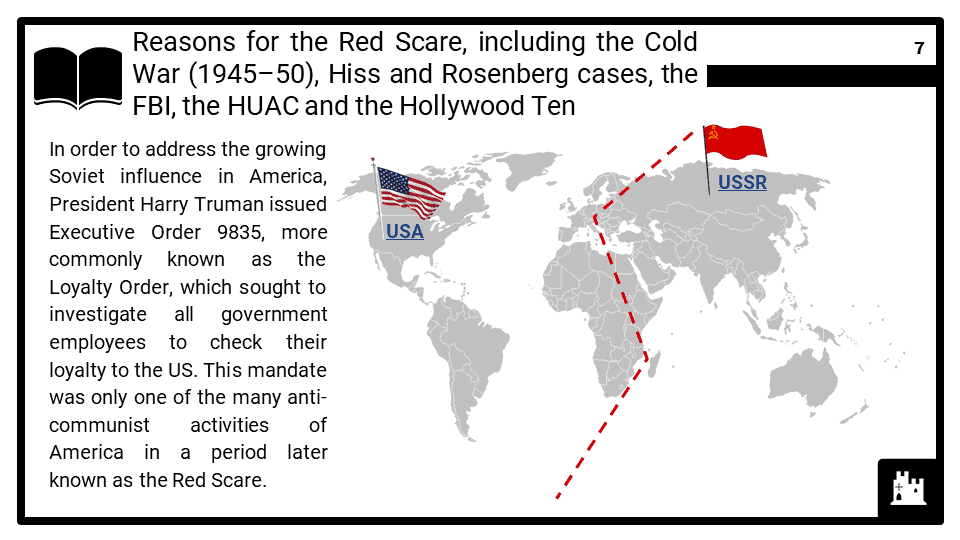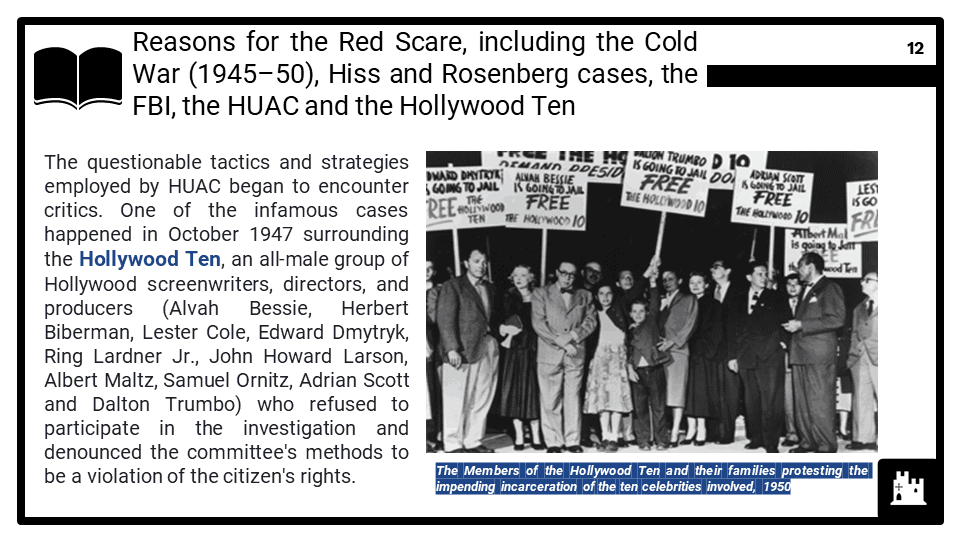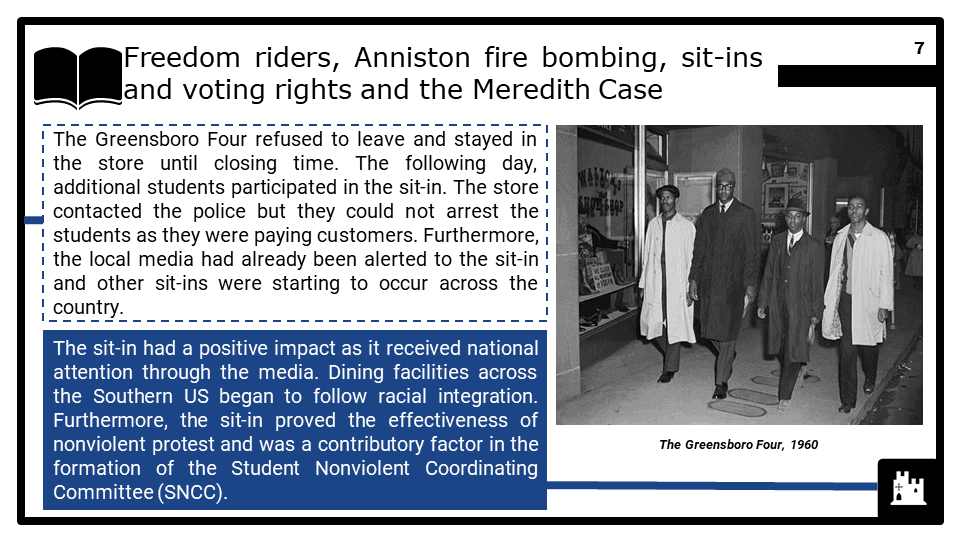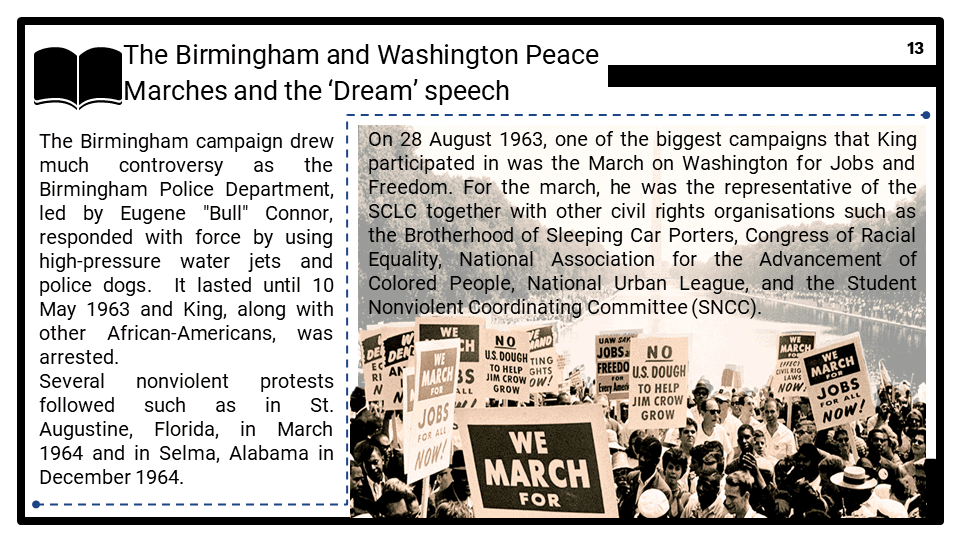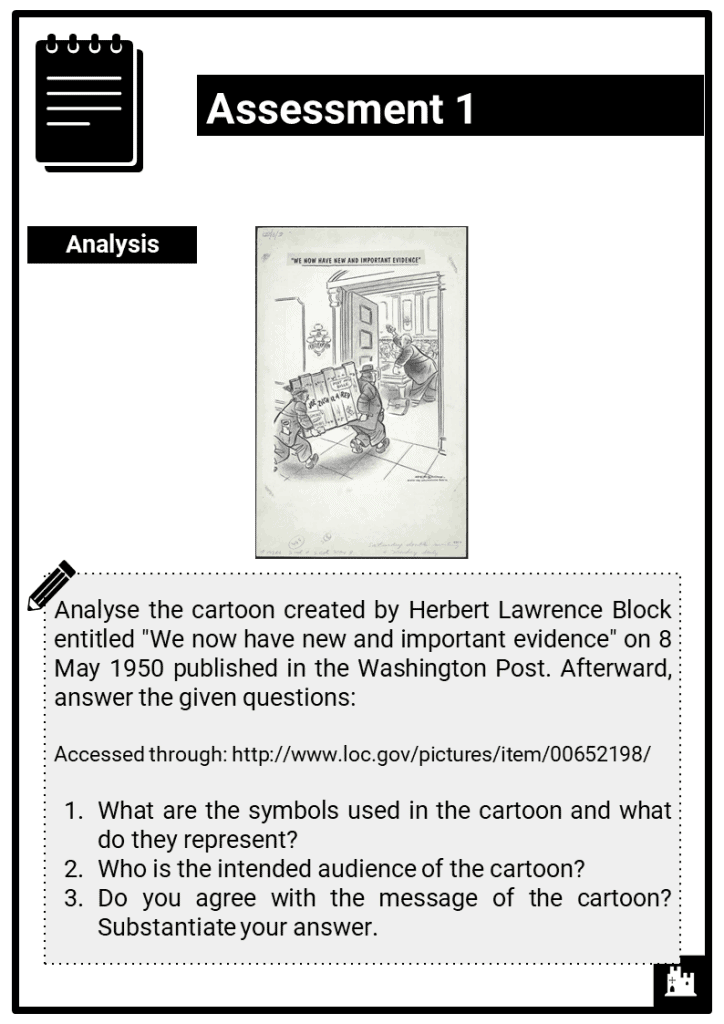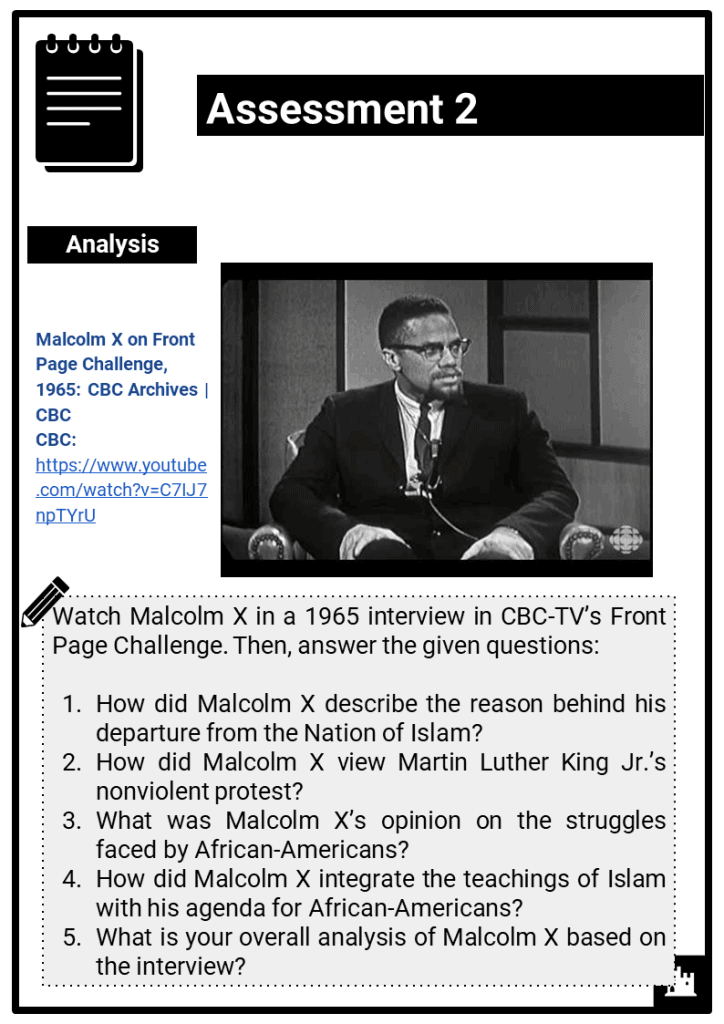Teach any Edexcel IGCSE module : A divided union: civil rights in the USA, 1945–74, no prep needed!
Do you want to save dozens of hours in time? Get your evenings and weekends back? Be fully prepared to teach any Edexcel iGCSE topic?
Every Edexcel iGCSE topic is covered, and each module comes complete with:
Paper 1: Depth Studies, A divided union, civil rights in the USA, 1945-74
What students need to learn:
- The Red Scare and McCarthyism
- Reasons for the Red Scare, including the Cold War (1945–50), Hiss and Rosenberg cases, the FBI, the HUAC and the Hollywood Ten. Methods used by McCarthy and the growth of opposition. Reasons for his downfall. Overall impact of McCarthyism on the USA.
- Civil rights in the 1950s
- Segregation and discrimination. The influence of the Supreme Court and Congress. The importance of Brown versus Board of Education of Topeka (1954), death of Emmett Till (1955) and the key events and significance of the Montgomery Bus Boycott (1955–56) and Little Rock (1957). The significance of the Civil Rights Act, 1957. Revival of the Ku Klux Klan (KKK).
- The impact of civil rights protests, 1960–74
- Freedom riders, Anniston fire bombing, sit-ins and voting rights and the Meredith Case. The methods and activities of Martin Luther King. The Birmingham Campaign, the Washington March and the ‘Dream’ speech. The failure of the Mississippi Freedom Summer. The impact of protest on civil rights legislation of the 1960s. Selma and voting rights. The Nation of Islam and the work of Malcolm X. Reasons for the growth of Black Power and its impact, including the 1968 Olympics; the influence of Stokely Carmichael. The impact of race riots especially in the Watts District. The Black Panther movement and the roles of Bobby Seale and Huey Newton.
- Other protest movements: students, women, anti–Vietnam
- Reasons for the growth of protest movements. The student movement and links to war in Vietnam, including the anti-Vietnam War movement. The Berkeley Free Speech movement. Students for a Democratic Society and ‘hippies’. Betty Friedan, Eleanor Roosevelt, NOW, women’s liberation movement and abortion. Phyllis Schafly and opposition to the women’s movement.
- Nixon and Watergate
- Reasons for and key features of the Watergate scandal. Impact on Nixon, US politics and new laws, including the War Powers Act (1973), the Election Campaign Act (1974), the Privacy Act (1974) and the Congressional Budget Control Act (1974); Gerald Ford and the presidential pardon.

